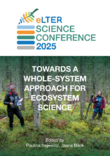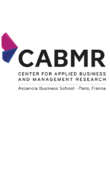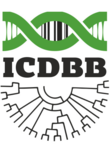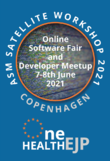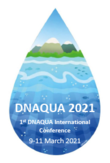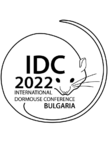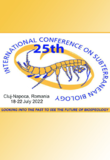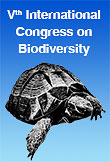Collections
The first eLTER Science Conference brings together scientists across disciplines who are striving for the holistic approach to understand the complex interactions between living organisms, humans, and their physical environment in the critical zone. The conference will nurture disciplinary and multi-, inter-, and transdisciplinary dialogue of researchers and science stakeholders, to enable actionable knowledge for maintaining conditions of habitability and wellbeing of current and future generations on our planet.
The program is composed of scientific sessions, focused on: multiple drivers of change (climate change, biodiversity loss, soil degradation, pollution and unsustainable resource use) and their compounded impacts; linkages between biophysical, ecological and socio-ecological concepts in place-based research; the spatial and temporal integration of environmental observations and modelling across disciplines; innovative technologies and algorithms for observing environmental change in-situ or remotely; evidencing the value of multivariable long-term place-based observation; methods for responsible and actionable research; and the development of environmental and socio-ecological sciences.
Instructions for Authors: eLTER Science Conference Abstract Submission.
Ascencia Center for Applied Business and Management Research – CABMR, and Gisma University of Applied Sciences, in collaboration with the Association for University Business & Economic Research – AUBER are pleased to announce their international symposium on:
“The Art and Science of Managing Performance”
Held on February 29th, 2024, and hosted at Ascensia Business School, Collège de Paris, ISF campus, La Défense, and Online.
Performance management is a multifaceted and multidisciplinary practice that plays a crucial role in driving success and achieving goals in different domains in business, performing arts, education, sports, healthcare, etc. Nevertheless, the strategies, techniques, and challenges associated with performance management can vary significantly across these diverse contexts.
It is within this framework that the contributions submitted to this symposium were thoroughly discussed and the exchanges were truly engaging.
This symposium served as a platform for presenting current research and practices in the field, highlighting the importance of cross-collaboration in driving performance management forward.
Highlights:
- 27 insightful presentations delivered by distinguished speakers via dual parallel sessions.
- An engaging roundtable discussion and a keynote that fostered an exchange of innovative ideas.
- A hybrid format with 36 attendees onsite and 53 online, enabling a global dialogue.
- Participants joined from across the globe, including France, Germany, Sweden, Belgium, Australia, the United Kingdom, India, Nepal, Malaysia, Myanmar, Pakistan, Niger, and beyond.
The Ascencia Center for Applied Business and Management Research – CABMR – is an applied research center in management and business administration, affiliated with Ascencia Business School, a private higher education institution and a founding member of Collège de Paris.
The term "resilience" is widely used and defined differently across various disciplines. In business and management, resilience refers to the ability of individuals, organizations, or systems to quickly return to normal functioning after a significant disruption. On the other hand, "cybersecurity" involves the use of technologies and best practices to protect critical systems and sensitive information from evolving threats. In today's rapidly changing environment, improving cybersecurity and resilience requires extensive knowledge, expertise in diverse fields, and continuous learning for organizations, communities, and nations.
It is within this context that the CABMR is organizing its first colloquium on March 9th, 2023, at the ISF campus, La Défense, Paris, France ; with the aim of further exploring the interdisciplinary crossroad of «Resilience and Cybersecurity».
Prospective authors are encouraged to submit previously unpublished contributions related to resilience and/or cybersecurity at its different levels of individual, team/group, organizations, projects, societies, etc. and within its different aspects and contexts; including but not limited to COVID-19 impact, social unrests, natural disasters, wartime, financial recession, disruptive technologies, etc.
Studies that demonstrate how different mechanisms interact would be of particular interest, as would proposals examining the antecedents and consequences of multiple mechanisms. The submissions can focus on any related topic and are open to all types of research methods. Researchers, professionals, practitioners, and students are all welcome to attend or participate to this event, in person or online, whether presenting a paper or not.
Communication proposals are to be submitted via the present platform in the form of an abstract of 1 to 2 pages written in English; in which the problematic, the methodology and the expected results are clearly highlighted. The deadline for submission is on 5/02/2023. Decision of acceptance or refusal of the proposals will be finalized by 13/02/2023.
For more information, please go to: https://cabmr-2023.sciencesconf.org.
The Joint Symposium will bring together scientists from all over the world to discuss recent developments and discoveries from all aspects of environmental biogeochemistry and subsurface microbiology.
The Organizing Committee welcomes everyone in fields related to biogeochemistry, geobiology, ecology, environmental microbiology, subsurface microbiology, environmental engineering, geochemistry, biochemistry, soil sciences, geology, oceanography, climatology, and astrobiology. We also welcome contributions that showcase the latest technologies in biogeochemistry and subsurface microbiology,
The symposium will include oral sessions, poster sessions, optional field excursions, and social and networking activities. There will be a range of invited and keynote speakers, a banquet, student and early career science awards, and events to honor past members who we lost recently.
Abstract submission deadline is June 1st, 2023. For more information, please visit: https://iseb-issm2023.org.
The conference ICDBB 2022 is organized in the frame of the project BULCode supported by the National Program “European Scientific Networks”, Ministry of Education and Science of Bulgaria. The event, organized in hybrid mode, will give the opportunity to researchers and recognized experts to share recent achievements in biodiversity and taxonomic studies implementing DNA marker technologies, including DNA barcoding and metabarcoding. Examples of successful national DNA barcoding initiatives will be presented as well. The conference will address DNA barcoding and biodiversity studies under the following main topics:
- Systematics
- Ecological research
- Conservation of biodiversity
- Sustainable agriculture and food safety practices
The due date for the abstracts' submission is 30 June 2022.
Software solutions become increasingly important for the daily work of One Health professionals in today’s world. The One Health community deals with multi-sectorial and interdisciplinary challenges covering the range from newly emerging threats, e.g., SARS-CoV-2, to endemic hazards, e.g., Salmonella. This Online Software Fair informs the One Health community about selected innovative digital solutions. It also provides a platform for software developers to present new or advanced features of existing software solutions.
The online event starts with pitch presentations from the selected applicants to provide a brief overview on each tool to all workshop participants. This is followed by three individual breakout sessions that allow participants to get detailed information on up to three software tools. Contributors to the Software Fair abstract book are also entitled to attend the on-site developer meetup in Copenhagen on the 8th June 2021. This meetup will give software developers the opportunity to exchange e.g. on technical implementation details or best practice information exchange solutions.
If you wish to present your software during the ASM 2021 Online Software Fair, please apply for a presentation by submitting an abstract until 25th April 2021 following the steps described on the OHEJP Website.
If you wish to participate on the event (without presentation), please see: https://onehealthejp.eu/asm-satellite-workshop-2021/.
TiBE is an annual meeting which aims to bring together senior researchers, post-graduate and graduate students working on the fields of biodiversity and evolutionary biology. TiBE has a different topic each year, and in 2020, the aim of the meeting is to discuss cutting-edge findings in relevant topics related to metabarcoding and metagenomic techniques, and their application in ecological and environmental research, including biodiversity surveys, environmental assessment, ecosystem function and services, interaction networks and species autecology, among others.
The meeting will discuss exciting developments associated with the advent of ever more powerful DNA sequencing technology, which are opening possibilities to explore the living world in ways that were unimaginable just a decade ago. During three afternoons, from Dec 9th to Dec 11th 2020, participants will discuss new opportunities, challenges and pitfalls of metabarcoding and metagenomic approaches, with examples provided by a wealth of case studies where these new techniques contributed decisively to improve our understanding of biodiversity and ecosystem patterns and processes. Moreover, participants will discuss the application of metabarcoding and metagenomics to foster new and more cost-efficient environmental assessment and monitoring programs. The conference will be held in an informal but stimulating scientific atmosphere, on an online platform that will foster networking opportunities and allows poster presentations. The program includes both plenary and short presentations from selected abstracts.
TiBE 2020 will be the closing meeting of the ERA Chair project ENVMETAGEN – Capacity Building at InBIO for Research and Innovation Using Environmental Metagenomics, funded by the European Commission, and that initiated in September 2015. TiBE is organized every year by CIBIO-InBIO, Research Center in Biodiversity and Genetic Resources based in Vairão, near Porto, Portugal. This institution will upgrade to a Center of Excellence in Environmental Biology, Ecosystem Research and AgroBiodiversity under the BIOPOLIS initiative, a Teaming project funded by the Horizon 2020 Widening programme of the European Commission.
Find more information in these links:
https://cibio.up.pt/tibe/details/tibe2020
http://inbio-envmetagen.pt/
https://biopolis.pt/en/
The International Dormice Conference (IDC) is being organized every three years to gather for five days scientists and conservationists to share findings and ideas on the research and conservation of the dormouse species. The conference includes a field trip, providing the opportunity to get acquainted with the local species ecology and habitats in different areas, as well as to build contacts with colleagues working on dormice species around the world.
The 11-th International Dormice Conference takes place in Bulgaria for at least two reasons; to raise awareness and attention for the research and conservation of the recently rediscovered in Bulgaria the Mouse- tailed dormouse (Myomimus roachi) – a species with restricted distribution, occurs only on the Balkans and western Anatolia; and to involve more researchers and conservationists from Eastern Europe.
Holding the IDC 2022 in Bulgaria underlines once again the importance of Balkans and the Eastern Europe for the conservation of the European mammalian diversity.
IDC 2022 is organised by The Habitat Foundation and The National Museum of Natural History - Sofia, part of the Bulgarian Academy of Sciences, and kindly supported by many other organisations and persons.
Find more information:
The founder of the 1st Institute of Speleology in the world was Emil Racovitza, who was invited by the Transylvanian authorities to be a professor at the newly reorganized University in Cluj. He accepted with several conditions, one of which was the founding of an Institute of Speleology under his supervision. The Romanian speological enterprise started in 1920. Emil Racovitza is considered the founder of biospeology and he defined the new science in his Essay on biospeological problems (1907), which later changed its name to biospeleology or speleobiology (or subterranean biology to encompass all subterranean habitats). The Conference will be organized under the auspices of the International Society for Subterranean Biology (ISSB-SIBIOS), with 4 days of oral presentations and posters and 3 days of speological field-trips to enjoy the Transylvanian natural and cultural treasures.
In recent years, classical biological sciences have progressed significantly, mainly through the introduction and validation of new methods of analysis (statistical, morphometric, molecular, etc.). Considerable successes have been achieved through the modern interdisciplinary approach in the analysis of phylogeny and the origin of flora and fauna. The increased interest in them is also dictated by their implications to nature conservation. At the same time, the need for correct cataloging, studying, management and conservation of global biodiversity is recognized.
The upcoming Congress is a continuation of the already traditional meetings for scientific debate and exchange of new scientific knowledge between researchers, students, lecturers, members of scientific and environmental organizations from Europe (Italy, Malta, Switzerland, France, Bulgaria, Russia and others) and Africa (Tunisia, Algeria, Morocco and others). It facilitates and deepens the interactions between people from the above groups working in a very dynamic environment fostering innovation that allows their research to always be on a high level and with direct benefits to society.
The Congress focuses on the following areas: plant and animal biodiversity; ecology of terrestrial, freshwater and marine ecosystems; faunistics, floristics, taxonomy and systematics; protected areas and their management; invasive alien species and their impact on local biodiversity; engaging civil society in sustainable use of natural resources.
The goals of the congress are to communicate and exchange ideas and knowledge to ensure a higher level of research, enhance the qualifications and efficiency of career development of the scientists in Biology, and enhance the international cooperation already achieved in previous meetings. The official languages of the congress are English and French.

